
10 Ways to earn AMA PRA Category 1 Credit™ CME without watching lectures
You don’t have to listen to lectures or watch presentations to earn AMA PRA Category 1 Credit. Here are 10 activities that will earn you CME.
Training programs, internships, degrees, certificates, and moreto gain the skills and credentials for an awesome career in medicine

You don’t have to listen to lectures or watch presentations to earn AMA PRA Category 1 Credit. Here are 10 activities that will earn you CME.
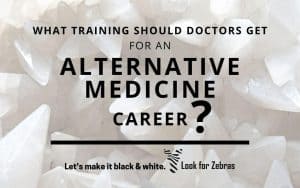
A reader asks what training is beneficial for doctors who wish to pursue careers that incorporate alternative and traditional medicine.
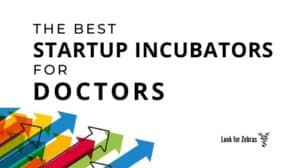
This article introduces some of the best startup incubators for doctors to move your idea in healthcare transformation to a successful business.
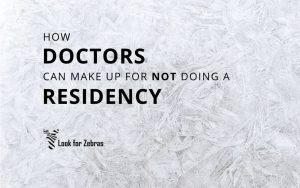
There are great jobs for IMGs without residency. This article describes 10 ways that you can – to some extent – neutralize the fact that you haven’t completed a US residency program. These can help you land a job that both pays well and makes use of your medical knowledge.
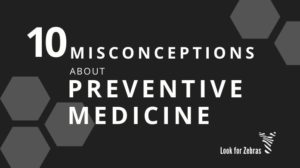
There are a bunch of misconceptions about the specialty of general preventive medicine. This article gives the truth about 10 of them.

It’s more important than ever to take time for your own physical and mental health. Physician burnout CME is a great way to help maintain your wellbeing and earn credits at the same time.
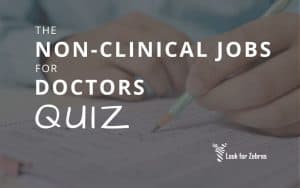
There are more nonclinical jobs for doctors than most people realize. For a physician considering a transition from clinical medicine, it can be tough to even know where to begin in exploring all the options that cover numerous industries, sectors, organization types. This quiz is a great place to start!
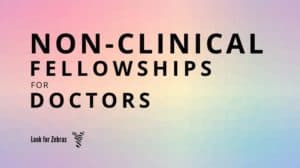
Here are the best non-clinical fellowships for MDs that are applicable for preparing for a career transition to utilization management or being a medical director with a managed care company.
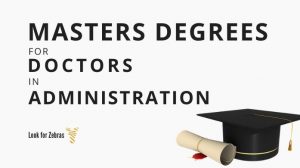
This article covers the main purposes, similarities, and differences between the various masters-level degrees in healthcare management.
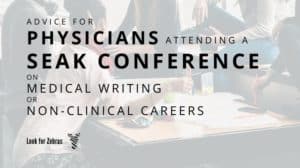
SEAK offers great tools and resources for physicians who are considering side gigs or non-clinical careers. Here’s how you can make the most out of the SEAK conference.

Reading trade publications and scholarly journals can help prepare for a physician leadership position or any nonclinical career. Here are 8 of the most broadly relevant to physicians in transition.
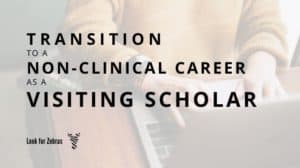
Transitioning to a non-clinical medical career can be difficult if you don’t have any experience outside of clinical medicine. Here’s how joining a visiting scholar program can be helpful.

Getting a physician executive MBA is expensive. But not every payment needs to come straight from your pocket. Here are 6 strategies to help decrease the burden of executive MBA fees and tuition.
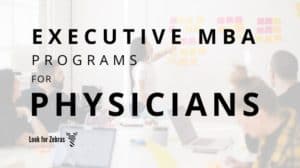
Having an MBA is an advantage especially if you are looking into applying for a higher-level administrative roles. Here are options and factors you’ll want to consider before you choose a physician executive MBA program.
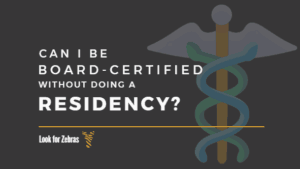
Board certification is not feasible without residency. However, there are some great routes to take if you’re open to redirecting your career plan.
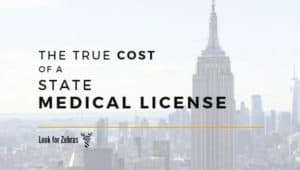
While medical license requirements by state are similar, the cost is not. Here are the various fees associated in obtaining and renewing a state license for physicians.
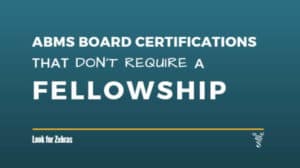
If you’re already board certified, there are ways to achieve a second ABMS board certification without doing a fellowship. Here, we present the two main ways to accomplish this.

Figuring out how to make extra money as a resident physician doesn’t need to be an added source of stress in your life. Here are some great clinical and nonclinical options.
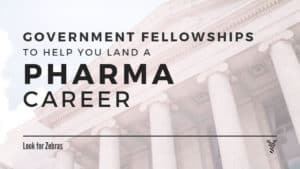
Whatever your stage of medical training or practice, federal government fellowship programs are worth looking into if you’re interested in a career in drug development and safety. Here are six federal government fellowship programs that are great options for doctors who want to break into pharma.
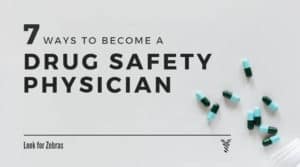
Getting into drug safety – as well many pharma jobs – can be difficult without having prior experience in the pharmaceutical industry. But there are ways to gain relevant experience in drug safety without actually holding the title of Drug Safety Physician. Here’s how.
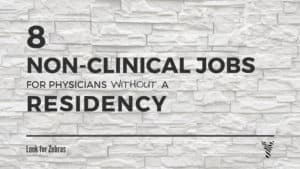
Whatever your reason is for not completing a residency, don’t let it hold you back from using your medical degree to have a fulfilling, lucrative career. Here is a rundown of some great jobs for physicians without a residency.
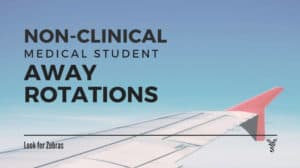
Medical students interested in exploring nonclinical career opportunities should look into applying for a nonclinical away rotation during their 4th year. A number of medical schools and hospitals have established medical student away rotations in a variety of nonclinical areas related to healthcare delivery. These include quality improvement, clinical informatics, business, law, and others.
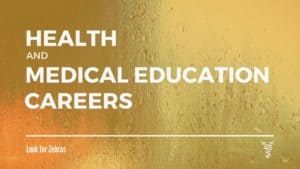
For those seeking a change in pace from the rigors of patient care, but who like the intellectual stimulation and teaching aspect of medicine, may enjoy positions in health and medical education.
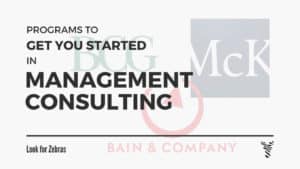
There are plentiful opportunities in management consulting for physicians. It’s notoriously difficult to be hired as a management consultant at one of the “big 3” consulting firms – McKinsey, BCG, and Bain. There are several programs to consider that are run by these firms, which are designed to give potential applicants a taste of what a career in consulting is like, but also to assist with recruitment and identifying applicants who merit an interview.
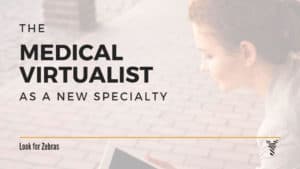
A recent viewpoint article in JAMA suggested that a new specialty may be in order: the medical virtualist. I’m almost sold on the idea.
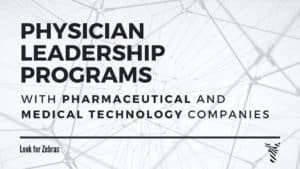
Physician leadership development programs can be an efficient way to transition from traditional medicine to a rewarding and lucrative career in the pharmaceutical or medical technology industry. These programs are developed and sponsored by large companies that see the value in introducing early-career physicians to the range of roles in the industry that require the knowledge, experience, and clinical expertise that doctors and healthcare professionals have to offer.
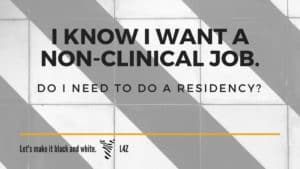
I’m hoping to get a job in consulting, and don’t really want a clinical career. Are there adequately paying jobs for physicians without residency?